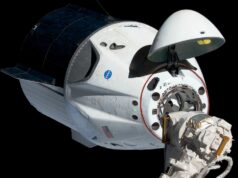
As the AI PC market prepares for a significant surge in 2024, the industry faces a multitude of challenges that could hinder its growth and adoption. Despite the promising projections, key hurdles must be addressed to ensure the successful integration and differentiation of AI capabilities in personal computers.
Market Dynamics and Projections
AI-capable PCs are projected to constitute 19% of global PC shipments in 2024, increasing to 60% by 2027. This growth is driven by the demand for enhanced computing power and intelligent features that AI can provide. Major players like Microsoft, Apple, and Intel are heavily investing in AI integration, focusing on hybrid AI and on-device intelligence to shape the future of the PC market.
Differentiation Challenges
One of the primary challenges facing AI PC vendors is differentiation. As AI capabilities become more ubiquitous, vendors will struggle to create unique selling points. This issue is exacerbated by the scale of AI PC rollouts, which makes it harder for companies to stand out in a crowded market. According to Ranjit Atwal, a senior director analyst at Gartner, vendors will need to provide compelling reasons for consumers and businesses to invest in AI PCs beyond the anticipated price increases.
User Adoption and Resistance
Despite the technological advancements, user adoption of AI PCs is not without resistance. Business device purchasers, in particular, demand clear benefits and practical applications for AI features before committing to new investments. The high cost of AI PCs and the need for substantial justification for the investment pose significant barriers. Additionally, there are concerns about the ethical implications and privacy issues associated with AI technologies, which further complicate adoption efforts.
Security and Privacy Concerns
AI integration brings enhanced security features, such as AI-powered anti-phishing software and advanced threat detection. However, these advancements also raise privacy concerns. The ability of AI to process vast amounts of data and make autonomous decisions necessitates robust security measures to protect sensitive information. Ensuring that AI PCs adhere to strict privacy standards will be crucial for gaining user trust and widespread acceptance.
Technological and Development Hurdles
The development of AI PCs requires significant technological advancements in both hardware and software. Companies like Intel are leading the charge with their AI PC acceleration programs and Core Ultra processors, designed to handle AI workloads efficiently. These systems are equipped with neural processing units (NPUs) to offload AI tasks from the CPU and GPU, enhancing performance and power efficiency. However, the complexity of developing and integrating these technologies presents substantial challenges.
Future Outlook
The future of AI PCs hinges on overcoming these challenges and demonstrating clear, tangible benefits to users. As the market continues to evolve, successful strategies will involve not only technological innovation but also effective marketing and user education. Companies must address privacy concerns, differentiate their products, and provide compelling use cases to drive adoption. If these hurdles can be navigated successfully, AI PCs have the potential to revolutionize the computing landscape in the coming years.










